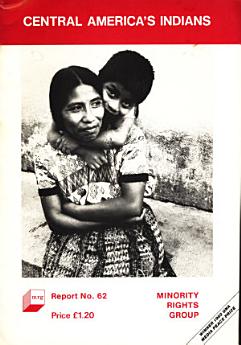Central America's Indians
About this ebook
To put it succinctly, this has traditionally been a relationship of oppression and exploitation of the Indians by the European settlers and their descendants, the principal mechanisms of which has been the agrarian structure. By depriving the Indian communities of their own land base and, therefore, of their economic self-sufficiency, the colonial and national governments and, more particularly, the ruling landowning classes created for themselves an almost inexhaustible cheap and subordinate labour supply. Rebellious groups were pushed into the marginal fringes of jungles and inaccessible mountains or simply repressed through military might. This basic system of economic exploitation (which has a number of regional and local variants) has been upheld over the centuries by a supporting structure of political power, social constraints and ideological justification, which has placed the Indians at the bottom of the social hierarchy and outside the mainstream of what has come to be known as national culture.
Economically subordinate, politically powerless and culturally isolated from the national decision-making centres, the native population of Latin America has become a marginalized underclass of rural proletarians, exiles in their own countries, discriminated against by the dominant Spanish-speaking population, even in such countries as Guatemala, Bolivia, Peru and Ecuador where they represent at least half of the total population.
Please note that the terminology in the fields of minority rights and indigenous peoples’ rights has changed over time. MRG strives to reflect these changes as well as respect the right to self-identification on the part of minorities and indigenous peoples. At the same time, after over 50 years’ work, we know that our archive is of considerable interest to activists and researchers. Therefore, we make available as much of our back catalogue as possible, while being aware that the language used may not reflect current thinking on these issues.
About the author
Minority Rights Group (MRG) is the leading international human rights organization working to secure the rights of ethnic, religious and linguistic minorities, and indigenous peoples, and to promote understanding between communities. We are guided by the needs expressed by our worldwide network of over 300 partner organizations in more than 60 countries. Together, we challenge power structures that exclude and silence those who are different. We understand how age, class, gender, sexuality and disability can have multiplying impacts on discrimination for minorities.
MRG is an international non-governmental organization with an international governing Council that meets twice a year. We have consultative status with the United Nations Economic and Social Council and observer status with the African Commission for Human and Peoples’ Rights. MRG is also registered with the Organization of American States. MRG is registered as a charity and a company limited by guarantee under English law: registered charity no. 282305, limited company no. 1544957.
David Stephen, who formerly worked for MRG and is now Director of UKIAS, visited Central America to research for this Report.
Phillip Wearne is a freelance journalist who has lived and worked in Mexico and Central America since 1981. He would like to pay special thanks to the development workers, clergy and indigenous people in Guatemala who helped compile this report despite considerable personal risks.




